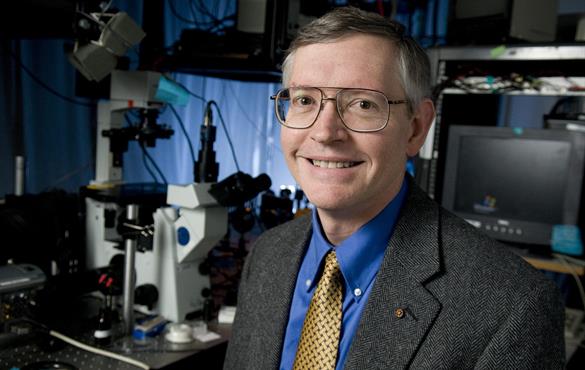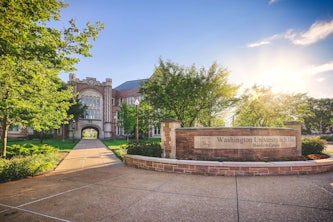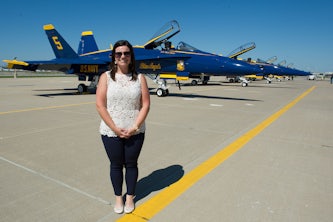Alumnus Moerner wins 2014 Nobel Prize in Chemistry
W. E. Moerner, PhD, an alumnus of the School of Engineering & Applied Science, has been awarded the Nobel Prize in Chemistry for 2014, along with two other scientists

W. E. Moerner, PhD, a 1975 alumnus of the Washington University School of Engineering & Applied Science, has been awarded the Nobel Prize in Chemistry for 2014, the Royal Swedish Academy of Sciences announced Wednesday.
He shares the Nobel Prize in Chemistry with Eric Betzig, PhD, of the Howard Hughes Medical Institute in Ashburn, Va., and Stefan W. Hell, PhD, of the Max Planck Institute for Biophysical Chemistry and the German Cancer Research Center in Germany. The three received the award for developing super-resolved fluorescence microscopy.
Moerner is the Harry S. Mosher Professor in Chemistry and Professor, by courtesy, of Applied Physics. His research focuses on physical chemistry, chemical physics, single-molecule biophysics, super-resolution imaging and nanoparticle trapping.
Moerner earned three bachelor's degrees, all with honors, from Washington University in St. Louis in 1975 in electrical engineering, physics and mathematics before going on to earn a master's and doctorate in physics from Cornell University. At Washington University, he was an Alexander S. Langsdorf Engineering Fellow, received the Dean's Award for Unusually Exceptional Academic Achievement as well as the Ethan A. H. Shepley Award for Outstanding Achievement.
Moerner created a new field of science — single-molecule spectroscopy and imaging — by being the first to perform optical detection and spectroscopy of a single molecule in condensed matter in 1989. This discovery is widely seen as one of the most important developments in biophysical chemistry, physical/analytical chemistry and chemical physics on the nanoscopic scale during the past two decades. The ability to optically observe individual nanometer-sized molecules is now having a broad interdisciplinary impact, from biophysical and cellular studies of proteins, enzymes, DNA and RNA, to physical/analytical chemistry of rare analytes, to spectroscopy of defects in solids, to materials science of amorphous materials and to single-photon sources of quantum mechanical light.
He has won many awards for his work, including the Peter Debye Award in Physical Chemistry, the Pittsburgh Spectroscopy Award, the Irving Langmuir Prize in Chemical Physics, the Wolf Prize in Chemistry, and is a member of the National Academy of Sciences. He holds 10 U.S. Patents and has others pending. He has published more than 300 papers in scholarly journals. In 2013, he received an Alumni Achievement Award from the School of Engineering & Applied Science.
In July 2015, Matthew Lew, PhD, who worked in Moerner’s lab at Stanford, will join the Electrical & Systems Engineering faculty as an assistant professor. While at Stanford, Lew designed microscopes and developed computational tools for three-dimensional super-resolution fluorescence imaging. In addition, he simultaneously measured the orientation and 3D position of single molecules for the first time.



